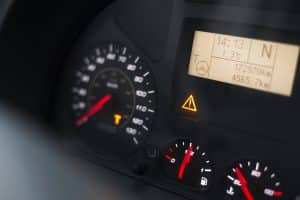
The Federal Motor Carrier Safety Administration (FMCSA) has a system for tracking the safety habits of each and every commercial driver in the United States. The Driver Safety Measure System (DSMS) tracks every accident, traffic ticket, out-of-service order and many other factors. Below is a guide for CDL holders who want to understand more about this system and how it can affect them and the carriers that employ them.
What is the DSMS?
The FMSCA’s DSMS is based on the Safety Measurement System (SMS) used to rate carriers. Despite the large amount of information that it tracks and records for each driver, the DSMS does not tabulate a final score, per se. Rather, it generates a “ranking” of each driver in several categories based on its various metrics. The DSMS does not affect a driver’s CDL or a carrier’s safety rating. Moreover, carrier companies cannot view a driver’s DSMS.
How the DSMS is Used
DSMS results are used exclusively for FMCSA enforcement officials. FMCSA accesses this information while performing Compliance, Safety, Accountability (CSA) investigations. The safety information that is compiled by the DSMS is also used to provide CDL driver data to the organization’s Pre-Employment Screening Program (PSP). Motor carriers can use the PSP to access driver inspection and crash records during the hiring process; thus, while a carrier cannot see a DSMS, it can see much of (but not all) the information in the system.
How the DSMS is Calculated
Each violation, offense, or other metric is assigned a severity weight. Serious offenses, such as reckless driving, are given a severity weight of 10. Lesser offenses, such as speeding 6 mph over the limit is given a severity weight of 4.
The severity is multiplied by a time weight based on how long ago the incident occurred:
- 3 – Less than 12 months
- 2 – Between 12 and 24 months
- 1 – Between 24 and 36 months
The DSMS does not record information more than 36 months old.
Within each BASIC (see below), a driver is ranked into a percentile based on the total score compared to other drivers in those same categories.
Metrics That Comprise the DSMS
Similar to the carrier SMS, the DSMS breaks down each metric into seven Behavior Analysis and Safety Improvement Categories (BASICs).
- Unsafe Driving. Any behavior or violation that puts other vehicles or the driver him/herself at risk is tracked in this category. This includes speeding, use of a cell phone while driving (even in states where it is legal), and not wearing a seat belt.
- Crash Indicator. The frequency and severity of any accidents are noted in this category. The information is pulled from state-reported crash data. The driver’s role in the accident (i.e. whether or not he/she is at fault) does not factor into the score.
- Hours of Service Compliance. In addition to violating federal and state law regarding the number of hours a CDL holder can work, this BASIC also includes violations of records of duty status (RODS). It also factors in driving while fatigued or ill.
- Vehicle Maintenance. This BASIC covers equipment failures (e.g. brakes, lights, etc.) as well as violations such as shifting loads, spilled or dropped cargo, and overloading.
- Controlled Substances/Alcohol. Drivers who are charged with driving under the influence of drugs or alcohol, even while operating a personal vehicle, will see the charge reflected here. Also included are charges of possession of controlled substances and unlawful use of prescription medication.
- Hazardous Material Compliance. Unsafe handling of hazardous materials, including improperly labeled or marked containers, as well as incorrectly secured materials are calculated in this BASIC.
- Driver Fitness. This BASIC tracks violations related to a driver’s qualification, training and health situation. It includes things such as driving without the proper endorsement as well as being medically unfit to drive a commercial vehicle.
What Can CDL Holders Do About Their DSMS Ranking?
Since it is impossible for a driver to know his/her DSMS ranking, many drivers opt to do nothing. However, drivers who are charged with traffic offenses, whether it is speeding, texting while driving, or driving while intoxicated, can prevent it from affecting one’s ranking by beating the charges in court. For that reason, any CMV driver would be well advised to hire a skilled traffic ticket attorney to challenge each and every ticket. An attorney can put together a solid strategy for each offense as they occur. Not only will fighting tickets keep them off one’s driving record, which in turn keeps them from affecting one’s DSMS ranking, but it also mitigates or eliminates an impact on one’s driving privileges, insurance rates, and employment opportunities.


